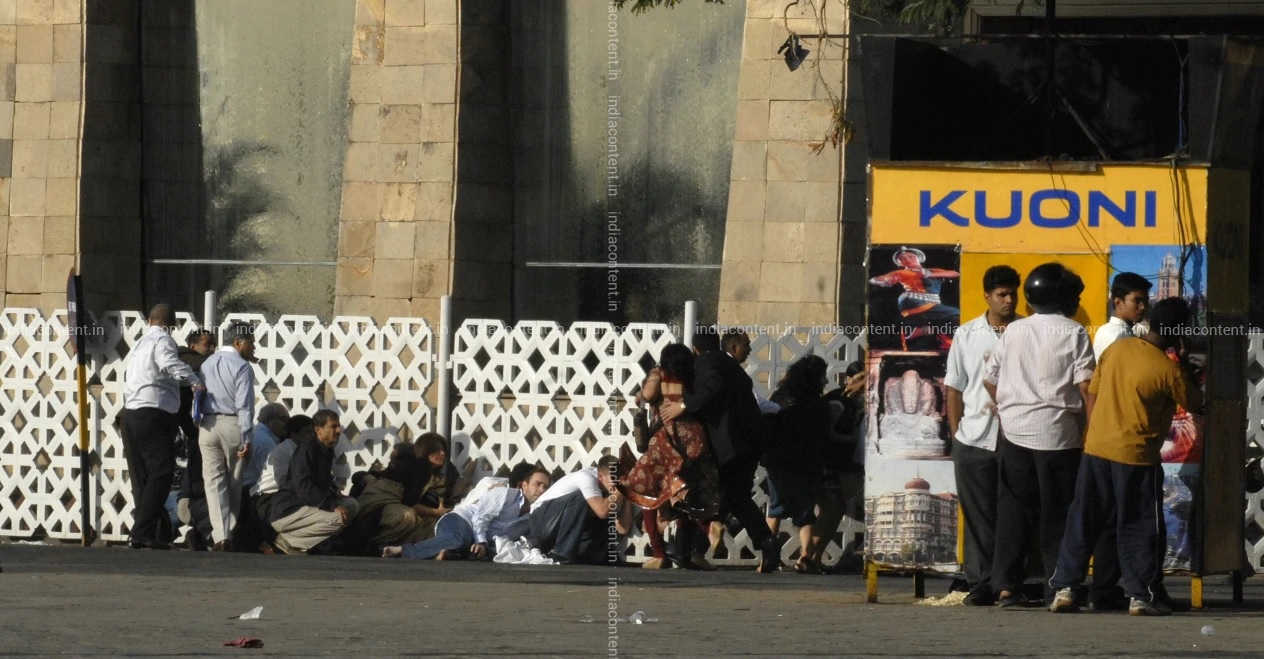
On the 11th anniversary of the Mumbai terror attacks, we remember everyone who lost their lives and mourn with their families. A grateful nation salutes the security personnel who made the supreme sacrifice,” President Ram Nath Kovind tweeted.

Tributes poured in on November 26 as the world remembers the victims who had lost their lives in the Mumbai terror attacks. The gruesome attacks started on November 26, 2008, and lasted for four days, killing hundreds of people.
Vice President M Venkaiah Naidu also paid tribute to the victims of 26/11 Mumbai terror attack and offered his salutations to the bravery and devotion of security personnel.
US State Department spokesperson Morgan Ortagus wrote on Twitter, “11 years ago a cowardly act of terrorism took the lives of 166 people, including six US citizens. Today we remember the victims of the #MumbaiTerrorAttack, and stand with their families in demanding that those responsible for this heinous event face justice.”
Mumbai 26/11 Attacks— All you need to know
On November 26, 2008, 10 Lashkar-e-Taiba terrorists came to Mumbai via sea route from Pakistan to carry out a series of coordinated shooting and bombing attacks across the city. The terrorists targeted major landmarks of Mumbai with the first attack taking place at the crowded Chhatrapati Shivaji Terminus (CST) railway station.

Ajmal Amir Kasab and Ismail Khan attacked this station, killing as many as 58 people and injuring over 100. Kasab and Khan later entered to attack Cama Hospital, but the same was obstructed with the alertness of the hospital staff. They, however, succeeded in killing six police officials, including Mumbai’s Anti-Terrorism Squad Hemant Karkare after leaving the hospital.
The second attack took place at Nariman House business and residential complex where a Rabbi, his wife, and six others, including five Israeli citizens, were killed by the terrorists who first held them as a hostage. The two-year-old child of the Rabbi couple, Moshe, survived in the attack.
The third attack was at the Leopold Cafe followed by Taj Mahal Hotel and Tower. Four terrorists attacked the popular cafe before they entered the famous Taj hotel where they killed as many as 31 people after laying a three-day siege at the hotel.
The other site of the attack was Oberoi-Trident hotel where two terrorists entered at almost the same time, as the other four had entered Taj. Here the siege officially ended on the evening of November 28 with as many as 30 being killed in the ghastly attack.
Finally, the attack and seize ended on November 29, 2008, the morning after the National Security Guards (NSG) secured the Taj Mahal Palace Hotel. The NSG commandos gunned down the last terrorists who had been hiding in south Mumbai’s Taj Mahal Palace hotel, killing over 160 people and leaving hundreds injured.
After the attack, it was established that the 10 terrorists had sailed to Mumbai from Pakistan’s port city, Karachi. Their expedition involved hijacking fishing dingy and killing four of the five men crew, leaving one occupant to ferry them to Mumbai coast.
In these horrific attacks, total nine terrorists were killed and the lone survivor, Ajmal Amir Kasab, was caught and was sentenced to death in 2012.

The Jamaat-ud-Dawah (JuD), whose mastermind was Hafiz Saeed, was believed to have plotted the 26/11 attacks. India’s stand on Hafiz has been supported by many International personalities including a former Central Intelligence Agency (CIA) director and former Afghanistan President. Besides, the United States State Department said that Lashkar-e-Taiba (LeT) founder Hafiz Saeed and 26/11 Mumbai terror attack mastermind is a tremendous concern to Washington.
In May 2018, former Pakistan Prime Minister Nawaz Sharif also stated that terrorists sent by Pakistan were responsible for the deadly 26/11 Mumbai terror attacks.
After combating the attack several policy decisions were taken to strengthen the nation’s anti-terrorism framework. One of the immediate decisions the then government took after the attacks was to deploy the NSG commandos in a few metropolitan cities. Later on, several NSG hubs were set up for faster response to terror attacks.
Relations between India and Pakistan have remained tense since the Mumbai attacks in 2008, and worsened after the Uri and Pulwama terror attacks by Pakistan-based terrorists in September 2016 and February 2019 respectively, in which many soldiers lost their lives.

Mumbai Attacks Images at India Content
The India Content website has a huge stock of Mumbai Attack images. The pictures are available in three sizes – small, medium and large.
You can purchase various other content images from the https://www.indiacontent.in